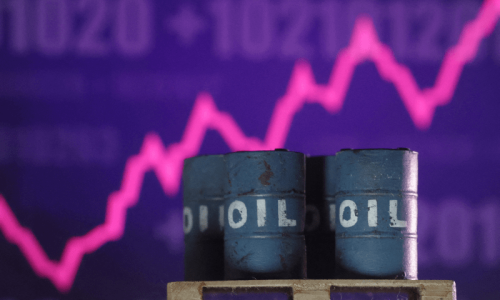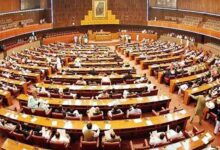US-Pakistan Oil Pact May Spark Energy Transformation

Experts have hailed a newly announced trade deal between the United States and Pakistan, calling it a potential game-changer for the country’s energy sector. The agreement, revealed Wednesday night, includes a partnership for the joint development of Pakistan’s oil reserves.
Finance Minister Muhammad Aurangzeb, currently in Washington to negotiate a tariff deal, held meetings with senior US officials ahead of the announcement.
US President Donald Trump confirmed the development early Thursday, stating that his administration had finalized a trade agreement with Pakistan focused on the “massive” oil reserves in the country.
“We are in the process of selecting the oil company that will lead this partnership. Who knows, maybe they’ll even be selling oil to India someday!” Trump said in a post on Truth Social.
Although further details are yet to emerge, local energy experts welcomed the deal with optimism, noting that Pakistan’s untapped reserves could significantly benefit from US expertise and investment.
Experts Optimistic About Untapped Potential
Karachi-based energy analyst Muhammad Iqbal Jawaid described the announcement as “encouraging,” emphasizing Pakistan’s vast but underutilized oil and gas reserves. He highlighted Balochistan, Khyber Pakhtunkhwa, and tribal areas near the Afghan border as key regions for exploration.
He added that offshore prospects also hold strong potential, particularly if developed in collaboration with global energy firms.
Energy expert Wasi Khan echoed this view, noting that Pakistan’s inability to unlock its full energy potential stems from inadequate infrastructure and under-investment. “Greater international cooperation can bring advanced technology, increased investment, and healthy competition — all in Pakistan’s favor,” he said.
Security and Investment Challenges
Khan pointed out that security concerns in regions like Balochistan and Khyber Pakhtunkhwa have hampered exploration efforts, despite the likelihood of significant oil and gas deposits. Jawaid agreed, stressing that improving law and order is critical to attracting foreign investors.
The mineral-rich province of Balochistan, central to the China-Pakistan Economic Corridor (CPEC), remains a strategic but volatile area where militant groups and separatist elements continue to pose challenges.
Towards a Transformative Energy Future
According to the US Energy Information Administration (EIA), Pakistan currently has proven oil reserves of 353 million barrels and produces around 60,000 barrels per day. With an annual oil import bill exceeding $12 billion, Pakistan relies heavily on imports from countries such as Saudi Arabia, the UAE, Qatar, Kuwait, and China, while also sourcing limited supplies from Russia.
The EIA previously estimated that Pakistan could hold up to 9 billion barrels of technically recoverable shale oil, a potential that experts say aligns with Trump’s remarks.
“If pursued with serious intent and backed by capable partners like the US, Pakistan could follow a transformative path similar to Saudi Arabia’s experience with Aramco,” Khan noted, expressing hope that the partnership could finally unlock the country’s long-dormant energy wealth.





